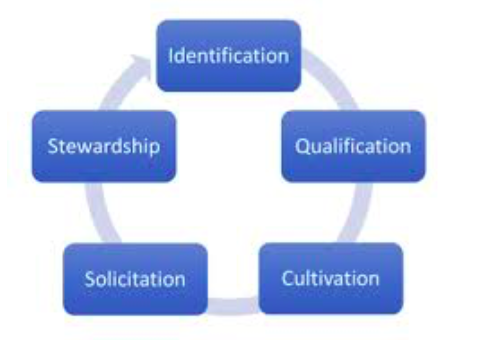Fundraising During Difficult Times

The tagline for Kairos and Associates is, “Inspiring Generosity.” It’s focused on the one who is generous instead of the one who is asking for money. Our underlying credo is that organizations don’t have needs. Those being served by our organizations have needs that are being met through our organizational missions. Our main focus is on the one giving and not the one asking.
However, in these uncharted days of COVID-19, many of us are wondering how to keep our missions going financially while being sensitive to those who provide the financial support. We want to know how to ask for money at a time when financial markets are unsteady at best, unemployment is skyrocketing, fear and anxiety are everywhere, physical distancing keeps us from being together and yet the payroll and bills keep coming.
Here are some helpful tips:
• During financially stressful times, generous people prioritize their giving. They will continue to give to those causes they see as vital, especially during these times. When asking for money, lift up your mission and tell how it is making a difference today. Telling stories is most effective.
• The #1 reason people give to any cause: they are involved in the organization. Don’t hesitate to contact those who are most involved to ask for additional gifts. Plus, ask how you can continue to involve people in your mission, even during physical distancing.
• Continue to say thank you for gifts already given. Tell how those gifts already given are making an impact in the midst of this pandemic. People want to know that their gifts are making a difference. Knowing this will encourage them to give again.
• For organizations who have put capital campaigns on hold, this may not be a good time to ask for large and multi-year gifts. But it is an excellent time to deepen relationships with those most likely to make those gifts in the future. Call them and ask how they are doing. Find out if there are ways you can be helpful to them at this time. Ask them if they have any prayer requests. Keep them informed about your pending campaign. Seek their insight about the projects and the timing of the campaign.
• For those who are delaying capital campaigns, it may seem there is little you can do at this time. Nothing is further from the truth. Asking for money is only one part of a fundraising campaign. Right now is an excellent time to do “fundraising” in different ways.
This diagram above is called the Donor Cycle. It identifies five phases of fundraising that lead to the most productive campaigns. In short:
Identification: Make a list of people who could possibly be interested and capable of making a major gift to your campaign.
Qualification: From the list you’ve developed, select the names of people most likely to make a gift to your campaign. Some qualifiers include: Have they given before? Are they involved in your organization? Do they have a history of making major gifts to other organizations? Is this campaign one they can get excited about? Etc.
Cultivation: Find out if these people have an interest in your campaign. Visit with them (phone or email). Keep them informed about the campaign. Ask them questions. Seek their advice.
Solicitation: This is the point in the donor cycle when the donors are specifically asked to make a gift to the campaign.
Stewardship: In fundraising circles, stewardship is everything that happens after a gift is given. Say thank you. Let them know how their gift was used. Make sure they know how important their gift is to the mission of your organization. Stay in touch with them.
Even today – maybe even especially today – four of the five phases of the donor cycle can be happening. The only one that is difficult to do (but not impossible) is soliciting major gifts. Remember the phrase, “don’t let a good crisis go to waste?” If you are in the midst of a capital campaign that is now on hold or planning to start one soon, keep “fundraising” by Identifying, Qualifying, Cultivating and Stewarding your donors.
Tom Jolivette | Consultant | Kairos and Associates | tom@kairosandassociates.com
